Analog vs digital
All rights reserved
Last modified: 10/04/2015
I spent a lot of time reading reviews on dpr and other sites about cameras and lenses.
I started with film photography in the 90ies, and when the digital dslr came out i saved money, so that i could
afford one. (Pentax K10D). When i look back i realize, that i didnt do a lot of good pictures in that time, because i was
too much thinking of the technology and too little over the actual image
But after some time and some lost pictures due to disk crashes, i realized, that a picture starts to exist, when i print it (or i have a negative).
Before that, its just an idea of a picture. Of course, you can share this (digital) idea of a picture over the Internet, like i do here. But thats not the same.
And if you calculate the costs of a digital camera and compare it to the costs of a used analog camera plus
costs for films and development at home, you realize, that you have to make really a huge amount of analog pictures, to be more
expensive, than the digital solution. How to develope a film at home?
What about picture quality? The best camera is the one you have with you.
Forget about dynamic range, megapixels, resolution and stuff!
Your influence to create a inspiring picture by choosing of perspective, exposure, situation etc and by
your mistakes is MILLION times bigger than any advantage a expensive resolution-monster-camera can give you!
Right now my favorite camera is my Zorki 6.
Its a basic rangefinder camera from the soviet union. I bought it on a flee market for 20 €
I like to handle it, i like to take it with me. Its sturdy and simple. It doesnt need batteries, it doesnt fool around, it just works. Always.
And the pictures come out nice, with a charismatic and creamy non-steril look.
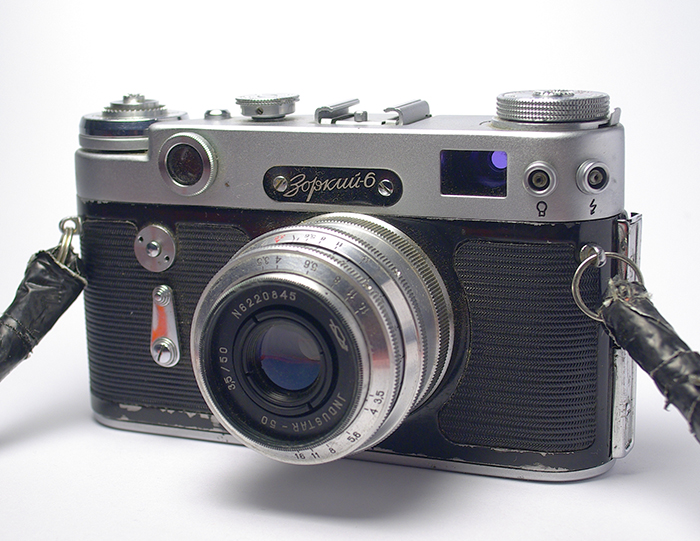
Zorki 6
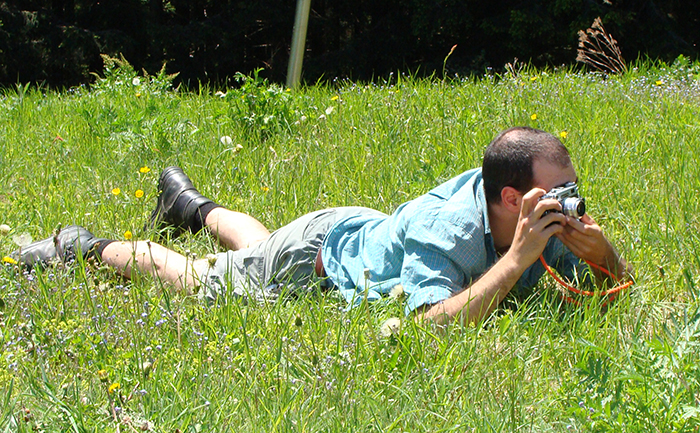
Me with my Zorki 6
I still think, that digital photography is great, especially if you want to share it
on the www. But if i take pictures for myself or for later printing them, i only do B/W analog.
Here are some examples of pictures i took with the Zorki 6.
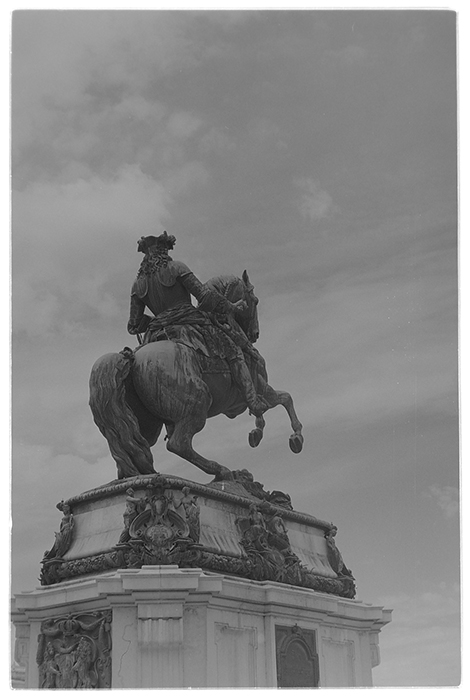
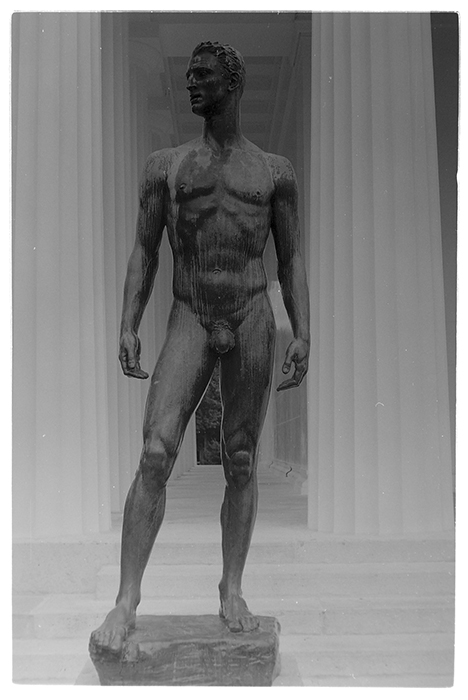
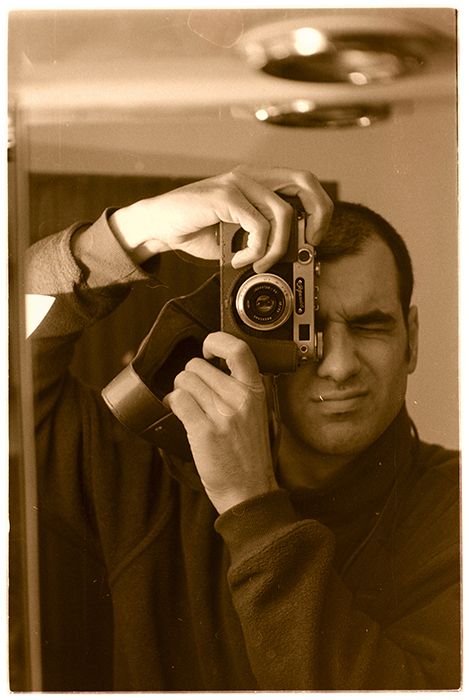
Is analog photography more expensive than digital?
I dont think so. I think its even the other way round!
Lets look at a example:
Imagine one person would buy a fullframe dslr with a 50mm Lens for about 1500 € and another person
would get an used analog slr with a 50mm lens for 50 €.
Is it fair to compair this two?
Yes it is!
We are compairing a modern digital 35mm Sensor with a modern 35mm Film,
because if you use film you have always the newest analog "sensor".
The body of the analog slr makes no difference as long as it works.
And the costs i calculated for the digital slr are at the low end.
So after how many pictures is the digital camera cheaper?
Lets make a quick calculation in excel:
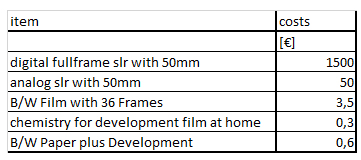
table of costs
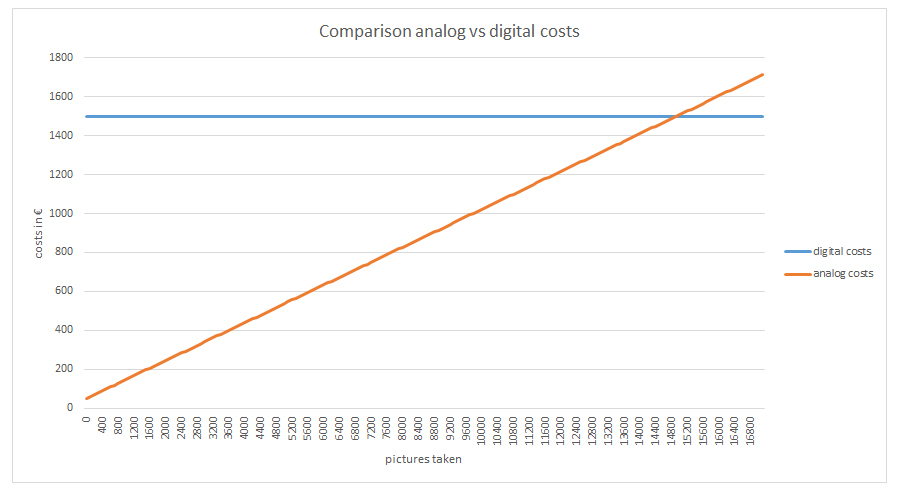
diagram for costcomparision
You can see here, that in this case, you have to make almost 15.000 negatives to have the same costs as with the digital slr.
But the difference is, that the analog guy REALLY HAS 15.000 PHYSICAL NEGATIVES. Imagine that, how much this is!
You propably need a lot of time to make that much pictures. If you would use one roll per week, it would take you 8 Years to make that much pictures.
And with this time your DSLR gets outdated, while your analog camera will always use state of the art film.
The difference between digital and analog is not only costs of course. The workflow of taking a
picture is different. With the analog camera you take fewer pictures and you think more
about how to do it, because, you have a limited number of shots. And because you dont see the result
immediatly on the back, you have to think harder about how this will turn out. This leads to a more conscious
photography wich usually means better pictures.
The downside is, that working with flash, or very unfamiliar lightconditions may lead to failed
pictures. Here the possibillity to see the result immediatly is very important.
If a friend asks me to make some pictures, i usually do this digital, because, so i can be sure, that i
got it right. And spreading and copying of digital data is much more easy of course.
When it comes to the picture quality, the difference is more a question of "character"
than of good or bad. And for non-critical use meaningless anyway.
HOME
comments